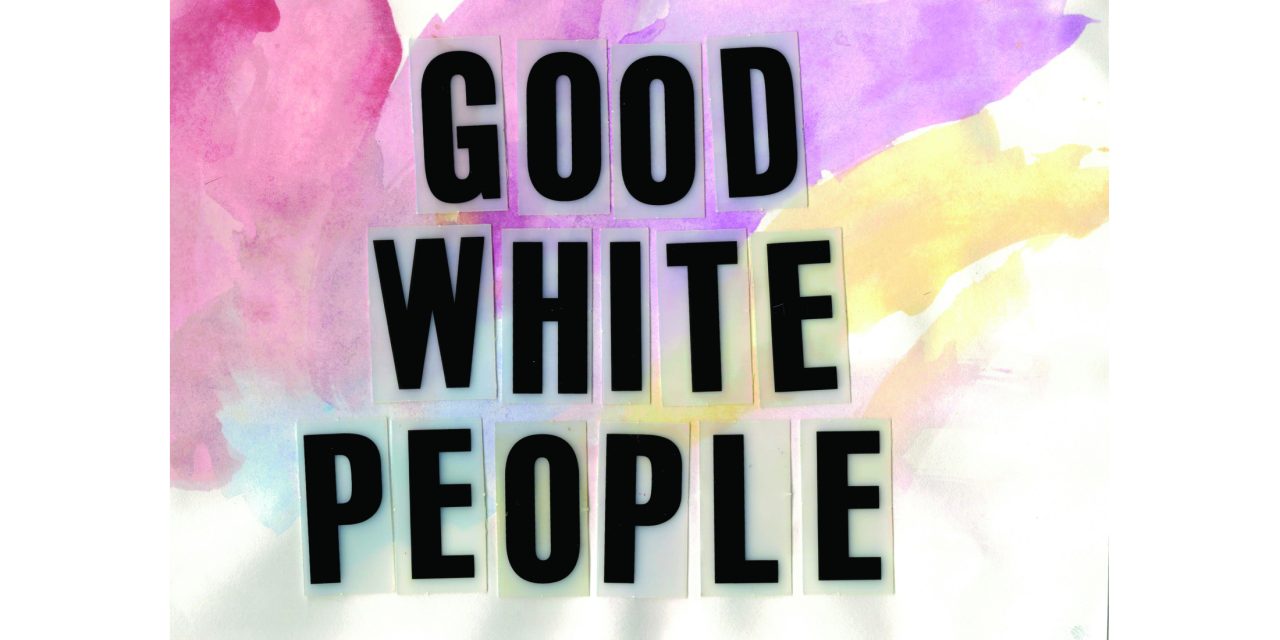Welcome to the Good White People series! I hope you’ll read along with me as I tell stories from my journey toward understanding the crisis of racism in America and becoming a better neighbor to the black people in my community.
Here’s what to expect:
Education – Much of the vocabulary of the movement for racial justice was new to me, and I want to explain it to you in non-jargony ways.
Examples – Anecdotes about average white people becoming aware of everyday racism were crucial and eye-opening for me. I hope to employ clear storytelling and good analogies – white people need them for understanding, and for keeping in mind to share with others.
Encouragement – Practicing tiny action, at whatever level you are, is the only way to get to larger action. I’ll try to list concrete actions you can take (ex: a link to e-sign a petition) and/or inner work you can commit to doing (ex: meditating on the word ‘peace’ for two minutes before bed.)
You can expect that Good White People posts will be written in a gentle tone, in kindness, and in respect. I have no intention of trying to make anyone feel stupid or ashamed or belittled; we’ve been too long damaged by our shame and too long silenced by our fear of making mistakes. As you read, take note of your feelings – you may indeed feel stupid and ashamed (we’ll cover that in another post) but know that you are not alone. Anyone who has committed to becoming more human, more alive, more useful to society has at times felt stupid, ashamed, and ineffectual. It is a right of passage for personal growth. Congratulations for taking the uncomfortable path!
White people are lucky, once again, because we can choose the pace at which we begin to wake up to atrocity and realize how we can help change the world. I’m going to be kind in my writings to you, but be aware that I’m trying to de-nice myself. White culture is full of niceness; white Christian culture in particular is often inoffensive to a fault. When you look at the life of Jesus and the stories he told – his blog posts or tweets, if you will – he was very kind. But he sure didn’t tow the party line on nice.
Nice is middle of the road, a little bland. Niceness is helpful, to a point, but a lifelong practice of niceness largely leaves one feeling empty, ineffectual, and confused. Kindness is crossing the road to help the beat up guy get out of the ditch and heal his wounds, a transformative experience for both parties; niceness stands at the edge of the ditch and means well, saying, “Oh you poor thing, I am so sorry that happened to you.” Niceness may feel genuine sympathy for the damaged other, might donate to a medical expenses fundraiser or visit in the hospital with flowers, but niceness takes no personal responsibility for keeping future people from getting beaten up and thrown into the same ditch. Niceness is a fading sympathy that loses over time any potency for change.
So then, the encouragement at the end of this post. Good white people, commit to stop being nice to black folks. Our brothers and sisters have been slogging through injustice for generation after generation after generation; they do not need nice. Commit to them your genuinely kind acts, your desire to learn about their lives, your willingness to make mistakes, and be humble enough to have awkward encounters and forgive yourself for them. This is where all of us must begin.
It’s a long journey, so I’m glad we’re learning together!
Megan

